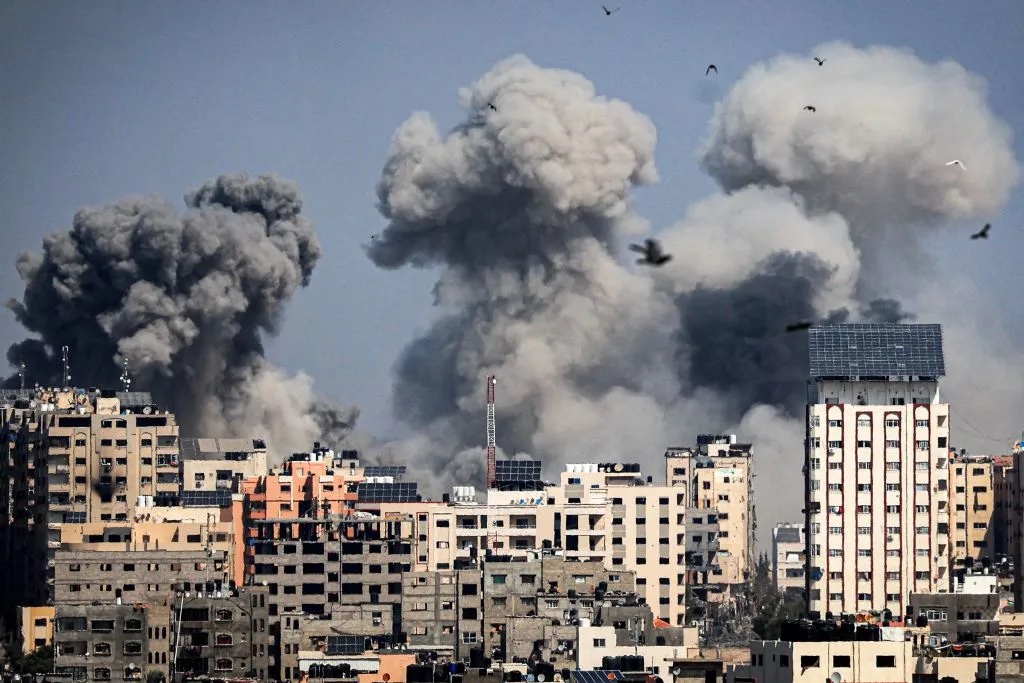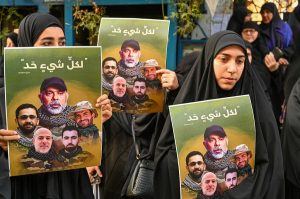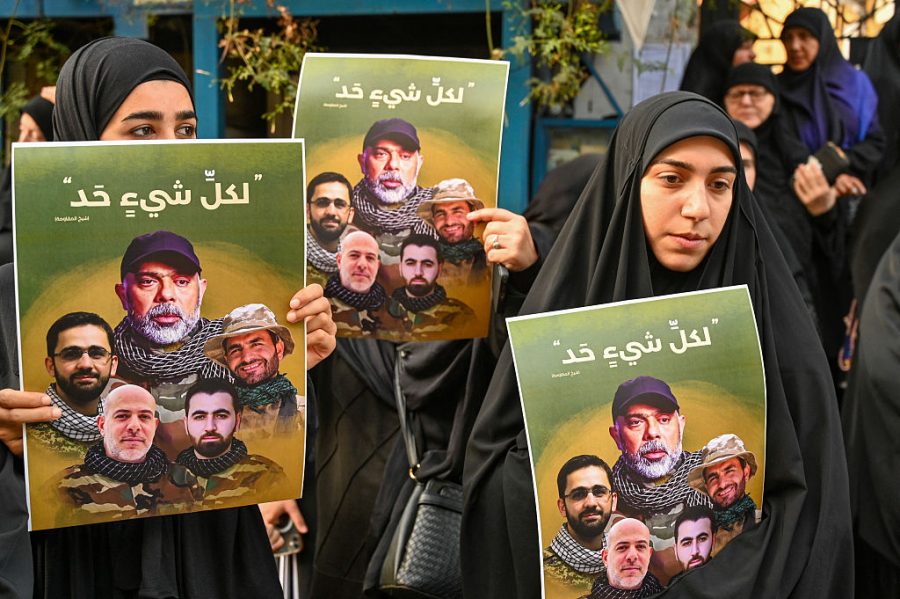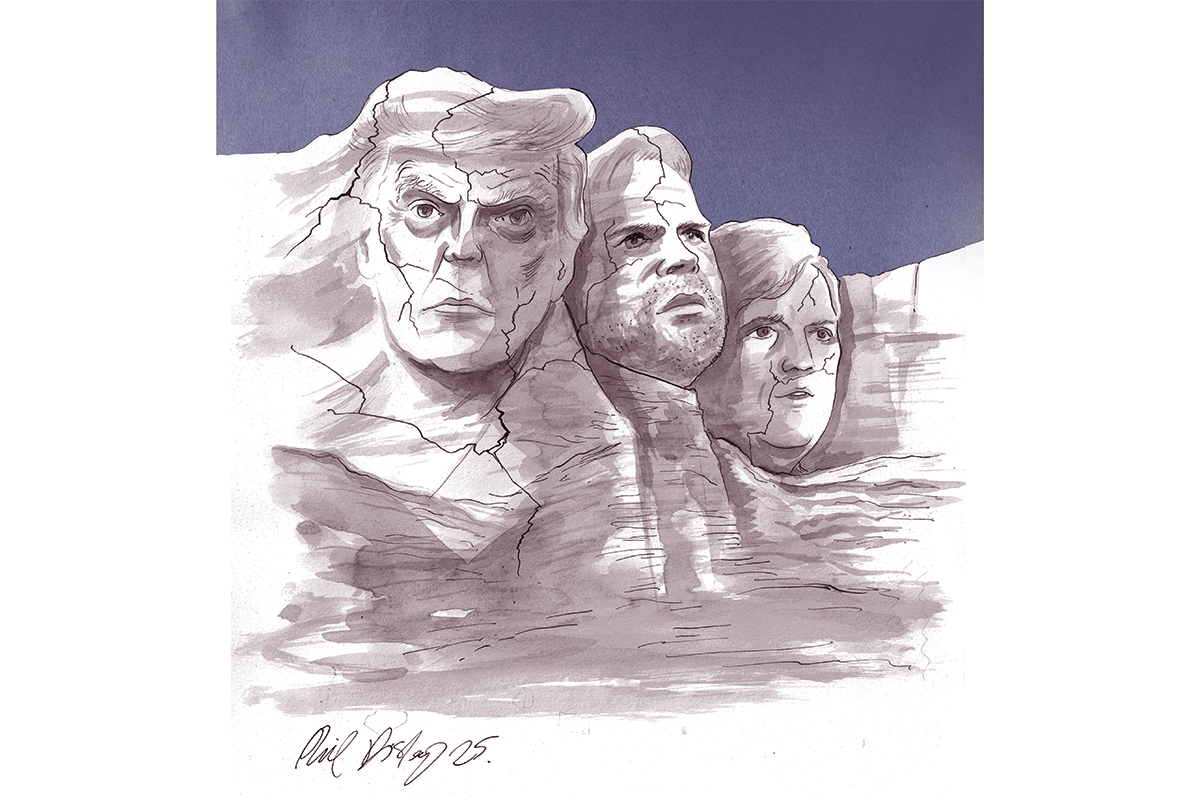The deliberate slaughter of Israeli Jews on October 7, 2023, was the most consequential event in the modern Middle East. It sent powerful reverberations across the region and well beyond it to the United States, the UK, Europe and Russia. Those tremors, like the war begun by the massacre, continue to this day.
On that fateful day, Hamas terrorists left Gaza, crossed into Israel in a carefully-planned attack, designed to kill as many Jews as possible and take others captive for negotiating leverage. The terrorists attacked young, unarmed concert-goers at an Israeli music festival and the residents of a nearby town. The attack killed 1,195 innocents. Approximately 250 more were taken hostage, dragged back to Gaza and held for ransom by their kidnappers. Some hostages remain there, living and dead, held for political ransom. Among those killed were 38 children, some of whom were beheaded. It was theatrical depravity.
The next day, October 8, Islamists in Lebanon launched a second attack, this one on Israel’s northern border. (Gaza is on Israel’s southern, Mediterranean border, next to Egypt.) The northern assault was conducted by Hezbollah, the heavily-armed terror organization in control of Southern Lebanon and a powerful actor in the rest of the country. The goal of this second attack, approved and funded by Hezbollah’s patron and financier, Iran, was to open a second front in the war, divide the resources of the Israeli Defense Forces (IDF), and inflict still more civilian casualties.
As Israel mourned its dead and grieved for its hostages, they also witnessed another shocking sequence of events: the most virulent anti-Semitic demonstrations in Europe since the Holocaust. The celebrations in some European capitals and a few American cities complemented those by Palestinians in Gaza and the West Bank. Significantly, all these celebrations began before the Israelis responded militarily to the attack. They were full-throated endorsements of the terrorist attack in New York, London and Paris, not a response to Israel’s counter-attack, which had not yet happened.
Israel was, of course, determined to respond to this unprovoked slaughter, just as America was after Pearl Harbor. And, just like America, the goal was not to engage in some minimal tit-for-tat rejoinder. Israel had more consequential, strategic goals, just as America did.
Israel’s primary goal was (and still is) to end its encirclement by Iran’s proxy forces (known as the “ring of fire”) and to end their constant attacks on Israel, which gave cover to Iran as it secretly finished developing nuclear weapons, which could exterminate Israel’s entire population and wipe the Jewish State off the map.
It is these larger, strategic goals – entirely “negative” ones of wiping out imminent threats – that Israel has implemented systematically in the two years since the October 7 attacks.
This comprehensive response has been led by Prime Minister Benjamin Netanyahu with strong backing, at least initially, from his Cabinet and the public. Over time, however, that strong backing has eroded for four reasons. The first is war weariness, which always occurs in protracted conflicts. Second is the desire for the return of all hostages, living and dead, and the fear that continued military action in Gaza will lead Hamas to slaughter the remaining hostages and keep all of them as negotiating leverage. Third, some key IDF leaders are worried about rising casualties among their troops if door-to-door fighting continues in Gaza. Hamas has continued to fight because of its extreme ideology and continued to hold hostages because Hamas fighters fear they will be killed if they give up the hostages without clear commitments from Israel, backed by the US. Fourth, and most difficult of all, support within Israel for the war has decline because there is no clear, achievable goal for Gaza after the war ends.
The problem of post-war Gaza is not just the enormous cost of reconstruction, which will be borne, at least in part, by rich Western nations and Arab Gulf states. There are two even deeper problems.
· Who governs? There is no clear, benign successor to Hamas as Gaza’s governing authority; and
· Will the Jew-hatred in Gaza ever stop? Most Gazans endorse the same anti-Israel, anti-Semitic ideology as that terrorist organization. If that doesn’t change, then future Gazan governments will have public support for a staunch, anti-Israel stand.
True, Gazans are sick of the war and sick of Hamas, but that doesn’t mean that they have given up their hate for Israel and for Jews. It was their votes in an election demanded by the George W. Bush administration that gave Hamas the power to govern Gaza after Israel withdrew completely. Hamas could have used that new-found “democratic authority” to build a state that lived in peace with the Jewish state. Instead, they built a terror state in partnership with Iran and significant funding from Qatar. Hamas consolidated its control by killing all its local opponents, eliminating alternative governance possibilities, aside from tribal groupings. The absence of those alternatives is a major problem for the future of Gaza.
International support for Israel, which was strong in Western capitals in the months after October 7, has ebbed significantly as the destruction of Gaza has continued. The clearest indication of that erosion is the decision by France and the UK to recognize an imaginary Palestinian state that lacks clear borders or a unified government. The US has rejected that move, so far, but polls show declining support for Israel, especially among young people.
Despite these strains, the long war has not been all bad news for Israel. The good news is that Israel’s tough, consistent military strategy has extinguished the “ring of fire” and delayed Iran’s nuclear program by years. The Jewish State has clearly emerged as the strong horse in the region and done so without permanently ending the chances for renewing ties with Arab-Muslim states, embodied in the Abraham Accords. It has sustained its stunning economic growth, grounded in high technology, despite calling up huge numbers of reserves from the civilian workforce. This combination of economic and military power is why Persian Gulf states want closer ties with Israel.
But Gulf Arab states cannot take the next step until the Gaza War is finished. For Israel, that means Hamas must be crushed and the hostages returned.
Those are the continuing obstacles of a war that began on October 7, with the Hamas slaughter of innocents, and expanded the next day when Hezbollah, backed and funded by Iran, attacked northern Israel. The dark shadow of those acts lingers over Israel, the Middle East, and the western world on this, the anniversary of that unprovoked terror.


























Leave a Reply